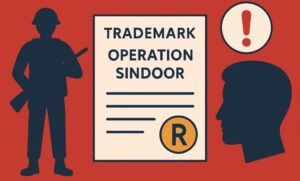Trademarks are powerful tools for brand protection, allowing companies to distinguish their products and services in a crowded marketplace. However, there is a hidden danger that lurks when trademarks become too successful – the risk of trademark genericide. Trademark genericide occurs when a brand name becomes synonymous with the product or service itself, transforming from a distinctive identifier into a generic term. In this article, we will explore how trademark genericide happens and the legal and strategic implications for companies.
Table of Contents
ToggleConcept of Trademark Genericide
Trademark genericide is a nuanced concept that encapsulates the transformation of a brand name from a distinctive trademark into a generic term for a product or service. This process occurs when consumers commonly use a brand name to refer to an entire category of goods or services, essentially making it synonymous with that category. For example, “escalator” was once a protected brand name but has now become a generic term for moving staircases. It’s essential to grasp that trademark genericide is not merely a shift in language; it represents a critical legal and strategic challenge for businesses. When a brand succumbs to genericide, it loses its exclusive legal protection, potentially leading to the erosion of a company’s market identity and competitive advantage.
Genericized Trademarks v. Generic Trademarks
Genericized trademarks and generic trademarks are distinct categories of terms, each with its unique characteristics and legal implications.
Genericized trademarks, like “aspirin” or “escalator,” were once legitimate brand-specific trademarks but have fallen victim to widespread generic use. These brand names lost their distinctive quality and legal protection as a result of being used so frequently to refer to the entire category of products they stand for. For instance, regardless of the producer, the term “aspirin,” which was once a trademark of Bayer, is now used generically to refer to painkillers containing acetylsalicylic acid. When a brand name becomes associated in consumers’ minds with the actual product, genericization takes place.
Generic trademarks, on the other hand, are terms that have always been generic and were never trademarks to begin with. These are common, non-distinctive words or phrases used to describe the product or service itself, and they are not associated with any specific brand. For instance, “computer” is a generic term used to describe computing devices, and no company can claim exclusive rights to it as a trademark because it’s a common name for the product.
Legal Implications
- Loss of Trademark Rights: When a trademark becomes generic, it loses its distinctive character. Trademarks are meant to serve as distinctive identifiers of the source of goods or services. Once a term becomes generic, it no longer fulfils this function, and the brand owner loses its exclusive rights to use the mark in connection with their products or services. Trademarks that have become generic may be subject to cancellation by the Indian Trademarks Registry or through legal challenges in court. The Trademarks Act, 1999, provides provisions for such cancellations based on non-distinctiveness.
- Competitor Use: When a trademark becomes generic, competitors can freely use the once-protected brand name to describe their own products or services within that category. This can lead to market confusion, as consumers may no longer associate the term with a specific source of goods or services.
- Enforcement Challenges: Brand owners may face challenges in enforcing their trademark rights after it has become generic. Legal actions against competitors or other parties using the term generically may become more complex, costly, and less likely to succeed.
- Generic Terms in Trademark Applications: Trademark examiners may refuse to register marks that are considered generic or have a high risk of becoming generic in the future. This can hinder a company’s ability to protect its brand with trademark registration.
- Consumer Confusion and Brand Dilution: As the generic use of a trademark spreads, it can lead to consumer confusion. People may assume that any product or service in that category is associated with the genericized term, even if it’s from a different company. The dilution of brand identity is a significant concern. A once-strong brand may lose its unique association with quality, innovation, and other attributes as it becomes a generic term. This can have long-term negative effects on the company’s reputation.
Approaches to Mitigate Genericide
To shield their trademarks from genericide, companies can adopt various strategic approaches:
- Consumer Education: Proactive efforts to educate consumers about the correct use of the brand name can be effective. For instance, companies like Xerox have launched advertising campaigns to discourage the generic use of their brand names.
- Use of Generic Terms: Some companies strategically use generic terms alongside their brand names. For instance, “Band-Aid adhesive bandages” reinforces the brand while reminding consumers of the generic term.
- Vigilant Monitoring and Enforcement: Regularly monitoring how the brand name is used in the market is crucial. Brand owners must be ready to enforce their trademarks, preventing genericide through legal actions if necessary.
Conclusion
Trademark genericide serves as a sobering reminder to brand owners that success can have unintended consequences. While achieving widespread recognition is a laudable goal, it can also expose trademarks to the risk of becoming generic terms. Striking a balance between promoting a brand and safeguarding it from genericide is essential. Through vigilant protection, consumer education, and strategic marketing, businesses can ensure that their trademarks remain potent symbols of their unique products and services in a competitive marketplace.
Frequently Asked Questions
- What is brand Genericization?
Brand genericization, or trademark genericide, occurs when a brand name becomes so commonly used that it transforms into a generic term for a category of products or services. This can result in the loss of legal protection and distinctiveness for the brand.
- Can you trademark a generic name?
No, you cannot trademark generic names. Generic terms describe the actual product or service, whereas trademarks are intended to safeguard distinctive brand identifiers. In order to qualify for trademark protection, generic terms lack the necessary distinctiveness.
- How do you prove a trademark is generic?
One must show that the term is frequently and consistently used by the general public to refer to the entire category of goods or services rather than to identify a particular brand in order to prove that a trademark is generic. Usually, this entails presenting proof of widespread generic usage.
- Is Xerox generic?
“Xerox” has been at risk of becoming generic due to its common use to refer to photocopying. Xerox has actively worked to prevent genericide by educating the public about proper usage, emphasizing “Xerox” as a brand name.
- Is Apple a generic trademark?
The trademark “Apple” is not generic. It is a distinctive brand name connected to one particular business, Apple Inc., and its goods. Apple has successfully kept its trademark’s distinctiveness.
- Is Google a generic trademark?
Due to the fact that “Google” is frequently used as a verb when searching the internet, there is a slight risk of genericide. Google has nevertheless taken steps to defend its trademark by informing users of proper usage and vigorously enforcing its rights.





